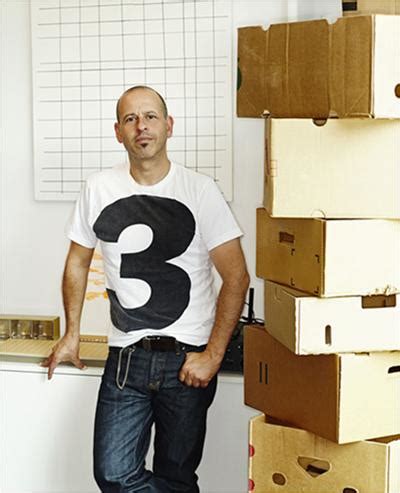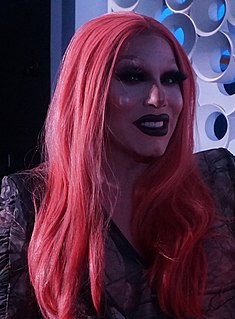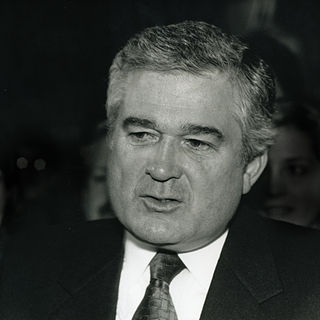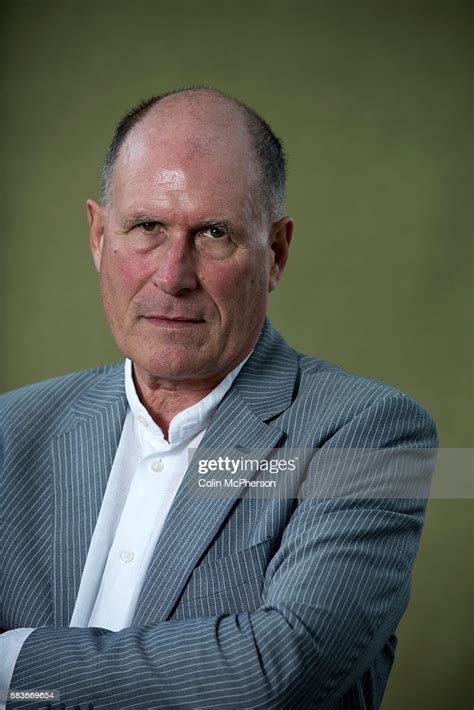A Quote by Micah Lexier
I have a lifetime project which consists of boxes and boxes filled with envelopes on which people have written my name. I've always thought of it as a kind of double portrait, and a portrait of our relationship, which in some cases means nothing. But it makes me feel connected.
Related Quotes
I think that one of the visions that is closest to reality is the cardboard city in the subway station in Tokyo, which is based very closely on a series of documentary photographs of people living like that and of the contents of the boxes. Those are quite haunting because Tokyo homeless people reiterate the whole nature of living in Tokyo in these cardboard boxes, they're only slightly smaller than Tokyo apartments, and they have almost as many consumer goods. It's a nightmare of boxes within boxes.
The animal merely makes a bed, which he warms with his body in a sheltered place; but man, having discovered fire, boxes up some air in a spacious apartment, and warms that, instead of robbing himself, makes that his bed, in which he can move about divested of more cumbrous clothing, maintain a kind of summer in the midst of winter, and by means of windows even admit the light and with a lamp lengthen out the day.
Ninety-eight percent are boxes, which tells me that a lot of people are in denial. We live and work in boxes. People don't even notice that. Most of what's around us is banal. We live with it. We accept it as inevitable. People say, "This is the world the way it is, and don't bother me." Then when somebody does something different, real architecture, the push-back is amazing. People resist it. At first it's new and scary.
He made the boxes because he was lonely. He didn't have anyone to love, and he made the boxes so he could love them, and so people would know that he existed, and because birds are free and the boxes are hiding places for the birds so they will feel safe, and he wanted to be free and be safe. The boxes are for him so he can be a bird.
In the Leach Pottery we did most of our work on the wheel. [Bernard] Leach did a little work in the studio, which was press-molded forms, plastic clay pressed into plaster forms to make small rectangular boxes and some vase forms, which he liked to make. These were molds which had been made to an original that he had modeled in solid clay, and during our work there, sometimes I would be pressing these forms as a means of production.
An honest self-portrait is extremely rare because a man who has reached the degree of self-consciousness presupposed by the desire to paint his own portrait has almost always also developed an ego-consciousness which paints himself painting himself, and introduces artificial highlights and dramatic shadows.
It is my secrecy which makes you unhappy, my evasions, my silences. And so I have found a solution. Whenever you get desperate with my mysteries, my ambiguities, here is a set of Chinese puzzle boxes. You have always said that I was myself a Chinese puzzle box. When you are in the mood and I baffle your love of confidences, your love of openness, your love of sharing experiences, then open one of the boxes. And in it you will find a story, a story about me and my life. Do you like this idea? Do you think it will help us to live together?
J.C. [Chandor] was the kind of energy we were looking for, so we decided to get behind it with all of our effort. That was the beginning of our relationship with first-time feature directors, and that's when it became really important to us, watching them thrive and grow in a creative environment in which you can do that was really key. Also his work checked all the boxes, because it was socially relevant and intellectually driven, and creatively exciting.

































